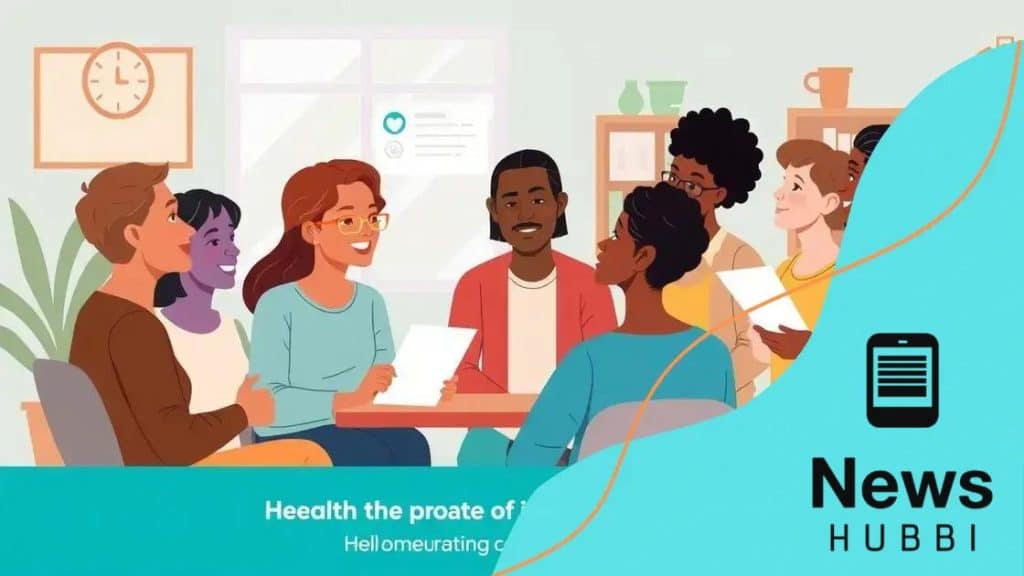How to apply for government health insurance in 2025

Anúncios
To apply for government health insurance in 2025, gather necessary documents, understand eligibility criteria, avoid common application mistakes, and utilize local resources for assistance.
How to apply for government health insurance in 2025 is a crucial question as many seek coverage. If you’re unsure of the steps involved, you’re not alone. Let’s dive into the essentials and make this process easier for you.
Anúncios
Understanding government health insurance programs
Understanding government health insurance programs is vital for anyone looking for coverage. These programs help many people access essential health services, ensuring they can get necessary medical care.
What are government health insurance programs?
Government health insurance programs are designed to provide affordable health care options for eligible individuals. They offer several types of coverage, tailored to meet diverse needs. These can include:
- Medicaid, for low-income families and individuals.
- Medicare, for seniors and certain disabled individuals.
- The Children’s Health Insurance Program (CHIP), focusing on children in families with moderate incomes.
These programs have specific eligibility requirements, so it’s crucial to check if you qualify.
Anúncios
Benefits of these programs
Government health insurance programs offer several advantages. They typically cover a range of services, allowing you to manage your health effectively. Some key benefits include:
- Lower costs: Many programs reduce out-of-pocket expenses, making healthcare more affordable.
- Comprehensive coverage: Most plans include essential benefits, such as hospital and emergency services.
- Preventive services: You can often receive free preventive care, helping you stay healthy and prevent illnesses.
With this understanding, you can make informed choices about your health care.
Eligibility criteria for 2025 applications

Understanding the eligibility criteria for 2025 applications is essential for anyone wanting to apply for government health insurance. Each program has specific guidelines that must be met to qualify.
Key eligibility requirements
To apply for government health insurance, consider the following criteria. You must typically prove your income level, age, and residency status. These factors determine your eligibility:
- You need to provide documentation of your income, which should meet the limits outlined by the program.
- Age can be a factor; for instance, Medicare is typically available for those aged 65 and older.
- Residency status is important; applicants must be legal residents of the state where they are applying.
Additionally, some groups may have special considerations. For instance, families with children or pregnant women often have different eligibility criteria.
Residency and citizenship requirements
Government health insurance programs often require you to be a legal resident or citizen of the United States. However, each program has distinct rules. To know if you qualify, check:
- If you have valid immigration status.
- How long you have been a resident in your state.
- Your application can also include individuals in your household who meet eligibility.
By understanding these criteria, you can prepare to apply effectively.
Step-by-step guide to the application process
A step-by-step guide to the application process can simplify your experience when applying for government health insurance. Knowing what to expect makes it easier to navigate.
Gather necessary documents
Start by collecting all required documents. This is an important step that can save time during the application. You will typically need:
- Your social security number or proof of immigration status.
- Income documentation, such as pay stubs or tax returns.
- Proof of residence, like a utility bill or lease agreement.
Having these documents ready will help you complete the application accurately.
Choose the right application method
Next, determine how you want to apply. There are several options available. You can choose to:
- Apply online through the government’s health insurance website.
- Submit a paper application, which you can request by calling the helpline.
- Visit a local office for in-person assistance.
Choosing the method that you feel most comfortable with can make the process smoother.
Fill out the application
When filling out the application, take your time to provide accurate information. Every detail matters. Be sure to double-check your details to avoid delays. Remember, this is where all your gathered documents come into play.
Submit the application
After reviewing your application, it’s time to submit it. If you’re applying online, click the submit button. For paper applications, mail it to the address provided on the form. After submission, you will usually receive a confirmation.
Follow up
Don’t forget to follow up on your application status. This can often be done online or by calling the support line. Following up ensures that any issues are addressed quickly, helping you secure coverage.
Common pitfalls to avoid during application

When applying for government health insurance, it’s important to be aware of common pitfalls to avoid during application. Many applicants make mistakes that can delay their coverage or even lead to denial.
Incomplete applications
One of the most frequent issues is submitting an incomplete application. Always double-check that all sections are filled out correctly. Missing information can cause delays or require you to resubmit your application.
Incorrect income reporting
Another area where applicants stumble is reporting income incorrectly. Make sure to include all sources of income and be accurate with your figures. This information is crucial to determine your eligibility.
- Include wages from all jobs.
- Report any benefits received, such as unemployment or Social Security.
- Provide tax returns for the previous year if necessary.
Being thorough will help ensure that you qualify for the right program.
Not following deadlines
Missing deadlines can be a costly mistake. Each program has specific enrollment dates. Stay informed about when applications open and close, especially if you miss the open enrollment period.
Lack of documentation
Your application should include all necessary documentation. Failing to provide proof of identity, residency, or income can lead to rejection. It’s wise to check the list of required documents before submitting your application.
By understanding these common pitfalls, you can approach your application with confidence and increase your chances of success.
Resources for assistance and support
Having access to resources for assistance and support can greatly enhance your experience when applying for government health insurance. Knowing where to find help is crucial.
Government websites
Start by visiting official government websites. These are reliable sources for information and guidance. You can find details about eligibility, application processes, and specific programs offered:
- The HealthCare.gov site provides comprehensive information about the health insurance marketplace.
- Your state’s health department site can give state-specific details and contacts.
- Medicaid and Medicare sites also have valuable insights for their programs.
These sites often offer live chat options to answer your questions.
Local community organizations
Local community organizations often provide free help with applications. They understand the challenges you might face and can assist you step-by-step. Some resources include:
- Local health clinics that provide guidance on health coverage.
- Non-profit organizations focused on health advocacy.
- Community centers that offer workshops on health insurance.
Connecting with these organizations can provide you the personalized support you need.
Helplines and support services
Using helplines can be a great way to get information quickly. Various support services offer assistance:
- The national health insurance helpline can guide you through the application process.
- State-specific helplines are available for questions about local programs.
- Some organizations have toll-free numbers to help with language translation services.
These resources help you navigate the complexities of eligibility and applications.
FAQ – Frequently Asked Questions About Applying for Government Health Insurance
What documents do I need to apply for government health insurance?
You’ll typically need proof of income, your social security number, and documentation of your residency.
How do I know if I am eligible for government health insurance?
Eligibility depends on various factors such as your income level, age, and residency status. Check specific program guidelines.
What are common mistakes to avoid during the application process?
Common mistakes include submitting incomplete applications, providing incorrect income information, or missing deadlines.
Where can I find assistance with my application?
You can find help at local community organizations, government websites, and helplines specifically set up for health insurance inquiries.





